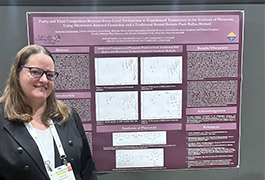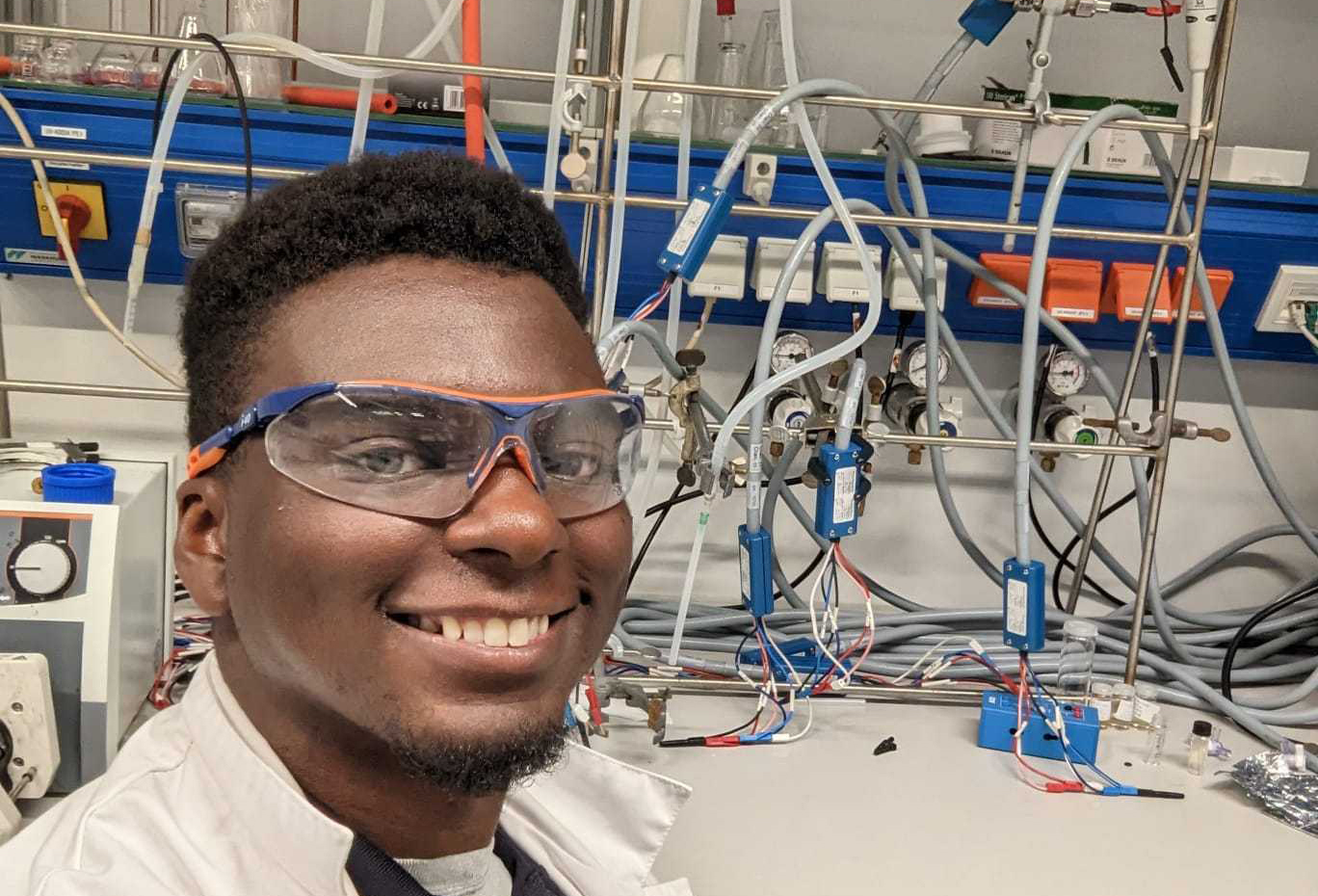Everything You Need to Know About Getting An Awesome Recommendation Letter
Last updated 5/14/2021
Whether you’re applying for an internship, a scholarship, a summer job, or graduate school, you are likely going to require at least one letter of recommendation. Two experienced recommenders are here to answer questions that may be looming in your mind.
Meet Michelle Boucher and Amy Keirstead and read what these professors have to say.
Who should I ask to write me a recommendation letter?
Keirstead: You want someone who can write about your teamwork and leadership skills, strength of character, and work ethic. As a professor, the student who earned a “B” in my class but came to office hours every week for help has allowed me to get to know them as a person and demonstrated their dedication to learning. Lab instructors can also provide unique perspectives about your teamwork, preparation, focus, and lab skills, if these are important considerations for your application.
Boucher: It is important that most of your letter writers be science professors if you are applying to programs in the sciences (internships, grad school, etc.). You can certainly consider one letter from a coach or the head of tutoring, but you will want most of your letter writers to be people who can speak to your potential as a scientist.
When and how should I ask them to write me a letter of recommendation?
Boucher: Hopefully, you know your professor (or other reference) fairly well, just as they know you. Approaching your professor for a letter should be no different from the way you approach them for homework help or advice. Contrary to what some students believe, it is not a big deal to ask for a letter; this is part of our job, and we are happy to help you move to the next stage in your career. Do you stop by office hours regularly? If so, stop by and simply ask. Do you plan meetings by e-mail ahead of time? Then e-mail your professor to schedule time to talk about a recommendation letter.
Typically, professors will want to talk to you about your letter. If they feel that they cannot write a solid and supportive one, they will tell you. In such a case, don’t panic. The reason might be as simple as them wanting you to look for someone who knows you better. They want you to have the best letter possible, even if it does not come from them.
Keirstead: I appreciate as much lead time as possible. This helps me schedule dedicated time and it gives me the chance to better compile my thoughts or even observe the student in a different way. Personally, I won’t write a recommendation letter for a student if they give me less than two weeks’ notice. A last-minute request suggests that they are not serious about the application. Also, don’t ever presume that your professor is going to write you a letter before they’ve agreed to it. It’s important (and courteous) to get confirmation from your recommender before inserting their e-mail address into a centralized application service.
What information should I provide so that my professor can write me an accurate letter?
Boucher: We have a lot of experience writing letters that are tailored to particular programs and fields. If we know what opportunity you want and why you are seeking it, we can be sure to highlight the attributes that those programs want to see. Providing a full list of programs with a few notes about what you like about them and why, deadlines, and how the recommendation letter should be delivered (e.g. application link, e-mail address), is the best way for me to be as accurate as possible.
Keirstead: I ask for a copy of the student’s résumé and have them answer a series of questions about the application process, what they’re applying for, why they want to earn the position or award, strengths and weaknesses, and why they think they deserve a strong letter from me. The responses help me evaluate the student’s written communication skills, their motivation, and their sense of self (do their strengths and weaknesses align with my observations?).
This method formalizes the process and gives students a chance to do a self-evaluation, which they tell me is very helpful. The most useful information I glean from the questions is often an anecdote of an interaction I had with the student, or one of their experiences they had in my class. Oftentimes I will have forgotten about this event, but my memory is jogged, which allows me to lend a more personal element to the recommendation letter.
What does a letter of recommendation look like, anyway? What goes into one specifically?
Keirstead: There are a few key points that are always required of the recommender.
- A description of how they know you and for how long. This gives the committee a sense of the writer’s ability to evaluate you.
- Your performance in their class, research lab, or another venue. These are the ‘behind the scenes’ or the ‘finer details’ of what is on a transcript or resume. For a research student, I’ll outline their research project, the skills and techniques they have learned, and any research projects. For a chemistry club student, I’ll talk about the activities in which they participated and any leadership roles.
- Your professor’s perspectives/observations about your personal characteristics. Does the student have excellent time management skills? How are their oral communication or problem solving abilities? Are they adaptable? Do they show good judgment? Are they receptive to constructive feedback? In my opinion, this is the most important section to write, and I strive to back up my perspective with examples or anecdotes.
If your professor has any reservations or feels the need to acknowledge any weaknesses, those may also be included in the letter. Negative comments are fairly minor and can actually strengthen the letter because they give the many positive comments more clout.
Boucher: In recommendation letters, I speak to the strengths that I have personally seen and place them within the context of what the position they are applying for needs. For example, if I am writing for a student who is applying for a bench chemist position, I will be certain to emphasize how many lab classes (or other lab-related experience) the student has done with me. I will be looking for examples where the student showed independence or a commitment to safety.
I’m an A student; why do I need a recommendation letter?
Keirstead: Your transcript and résumé are important parts of your application, but they don’t tell the whole story. Even if you are an A student, the admission/scholarship committee also wants to know who you are as a person. Will you fit in well with the existing community? Will you represent the organization well? Do you have the personal characteristics necessary to succeed in this career or graduate program?
This is where your letter writer can add important perspectives as well as expert opinion on your academic and technical skills and strengths. Some of my favorite letters to write are for students who did not earn an A in my class but who demonstrated their dedication, work ethic, personality, and grit. I am always pleased to be able to provide insight that puts a letter grade in perspective.
Boucher: In many ways, a transcript only tells the reader how well a student does at being a student. It is good to get A’s and B’s, but your GPA does not tell an employer how safely you work in a laboratory setting, nor does it tell a graduate school how well you help general chemistry students in group tutoring. There is much more to you than your GPA, and your letter writers can share some of that with your future programs and employers.
What can I do to make sure that my professor writes the best possible letter for me?
Boucher: Be the best student you can be, which is more than doing well on exams. Ask questions, be involved, be a leader. Focus on careful and safe work in the laboratories, and consider starting a research project with one of your professors. Not only is it great experience, but it also gives your professor a better look at how well your skills are developing.
Keirstead: In a small class or extracurricular setting, it’s much easier to get to know a student, but in a larger class, I can write the best (most accurate and most descriptive) letters for students who have taken the initiative to let me get to know them. Ask and answer questions in class, or if you’re shy, come to office hours. Demonstrate your teamwork skills and ability to stay on task when we do in-class group work activities, as well as your organizational and time management skills by submitting complete work on time. Stand out among the crowd (in a positive way) and these efforts will not go unnoticed.
What else should I consider when asking a professor to write me a letter?
Keirstead: Ask your professor if you need to waive the right to view your recommendation letter (this is a click-box on a centralized application). Many professors will request that you do this so that we can write candidly about you, which makes for a stronger, more honest, letter. Also, while we are happy to write letters for students, being thanked with a written note or a card is very much appreciated. In fact, this is good etiquette in general! Follow up with us to let us know if you were accepted/received the award (we love to share in your success!) and, most importantly, pay it forward. We professors are able to write recommendation letters for our students because our professors took the time to write letters for us.
Boucher: Make it easy and clear for the professor to know what you need and when you need it. Don’t be afraid to gently remind them as the deadline approaches. Just because they are busy doesn’t mean that they don’t care! It is sometimes difficult to keep track of all the deadlines. A gentle reminder can be a lifesaver.
And there you have it! Good luck securing those recommendation letters!





